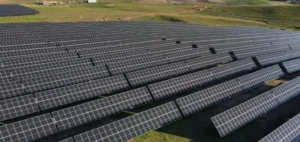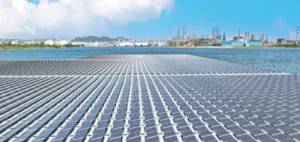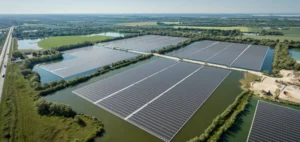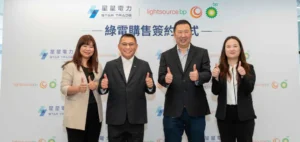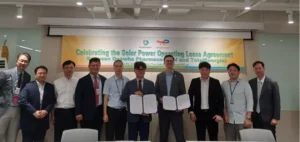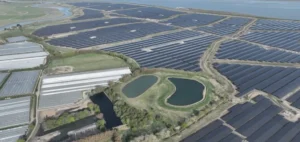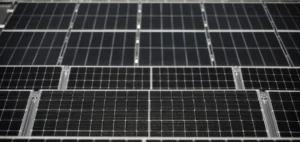Sunrock, a leading European developer of photovoltaic systems, is installing large-scale systems on the roofs of several Mercedes-Benz AG sites in Germany. With a planned total capacity of 23 MWp spread over 17 roofs, the project aims to provide renewable energy for the automaker’s internal processes. These installations, which began at the end of 2023 in Rastatt and Sindelfingen, will enable Mercedes-Benz to make progress towards its goal of using 100%renewable energy by 2039. Despite the renewed popularity of coal in the country.
Technology and cooperation
The solar panels, manufactured in Germany by Meyer Burger, will be used for one of the plants in Kuppenheim. Once completed, these facilities will supply sustainable, local electricity through specific Power Purchase Agreements (PPAs). Georg Brenninkmeijer, Managing Director of Sunrock Germany, underlines the excellent cooperation with Mercedes-Benz. He also asserted that these projects are a pillar of the manufacturer’s sustainable business strategy.
“We are delighted to support the sustainable business strategy of one of the world’s leading automotive companies. In future, Mercedes-Benz AG sites in Germany will be powered by solar energy generated locally on their own roofs. We are grateful for the excellent cooperation and are actively pursuing the installation of more photovoltaic systems.”
Implications and future developments
Arno van der Merwe, Vice President of Production Planning at Mercedes-Benz AG, explains that:
“The goal for all Mercedes-Benz production facilities worldwide is to run on 100% renewable energy by 2039. The expansion of photovoltaic systems plays an important role in this goal. By transforming our own production sites into renewable energy production sites, we are actively contributing to the energy transition in Germany.”
Sunrock, affirming its commitment to growth and sustainable development. It plans to further expand its PV installations in Germany, as demonstrated by previous projects with other major companies.
Sunrock’s initiative to equip Mercedes-Benz with clean photovoltaic capabilities underlines a significant commitment to sustainable energy in the automotive industry. This partnership facilitates Mercedes-Benz’s transition to renewable energies. It also marks an important step for the industry as a whole towards greener practices.



